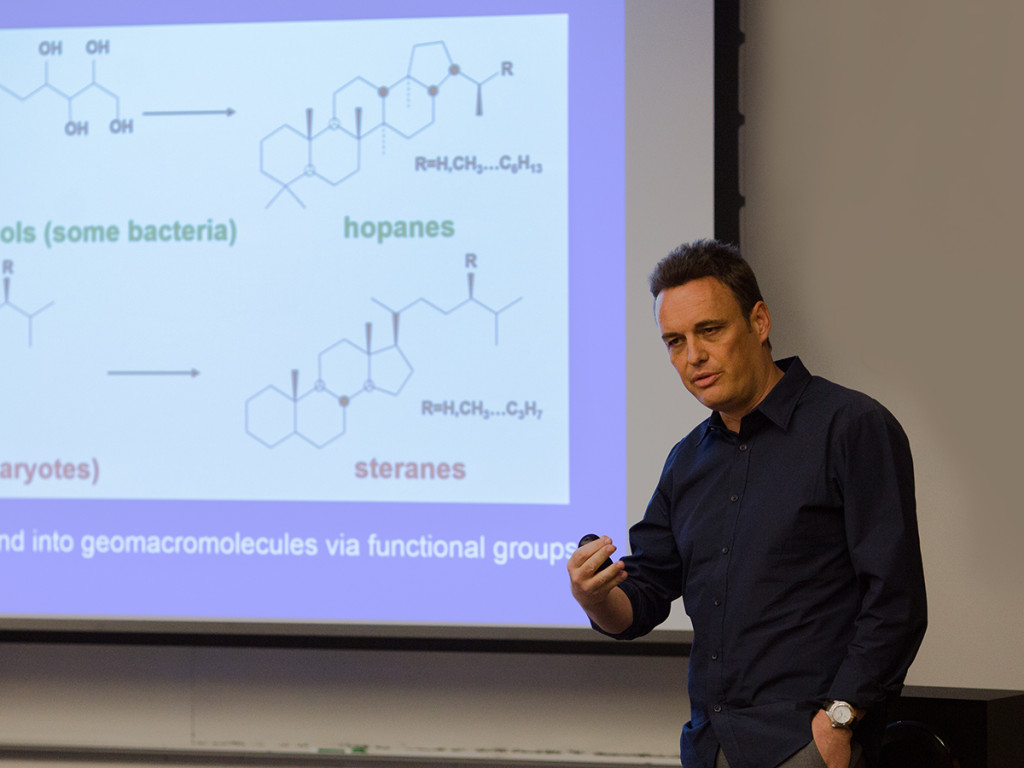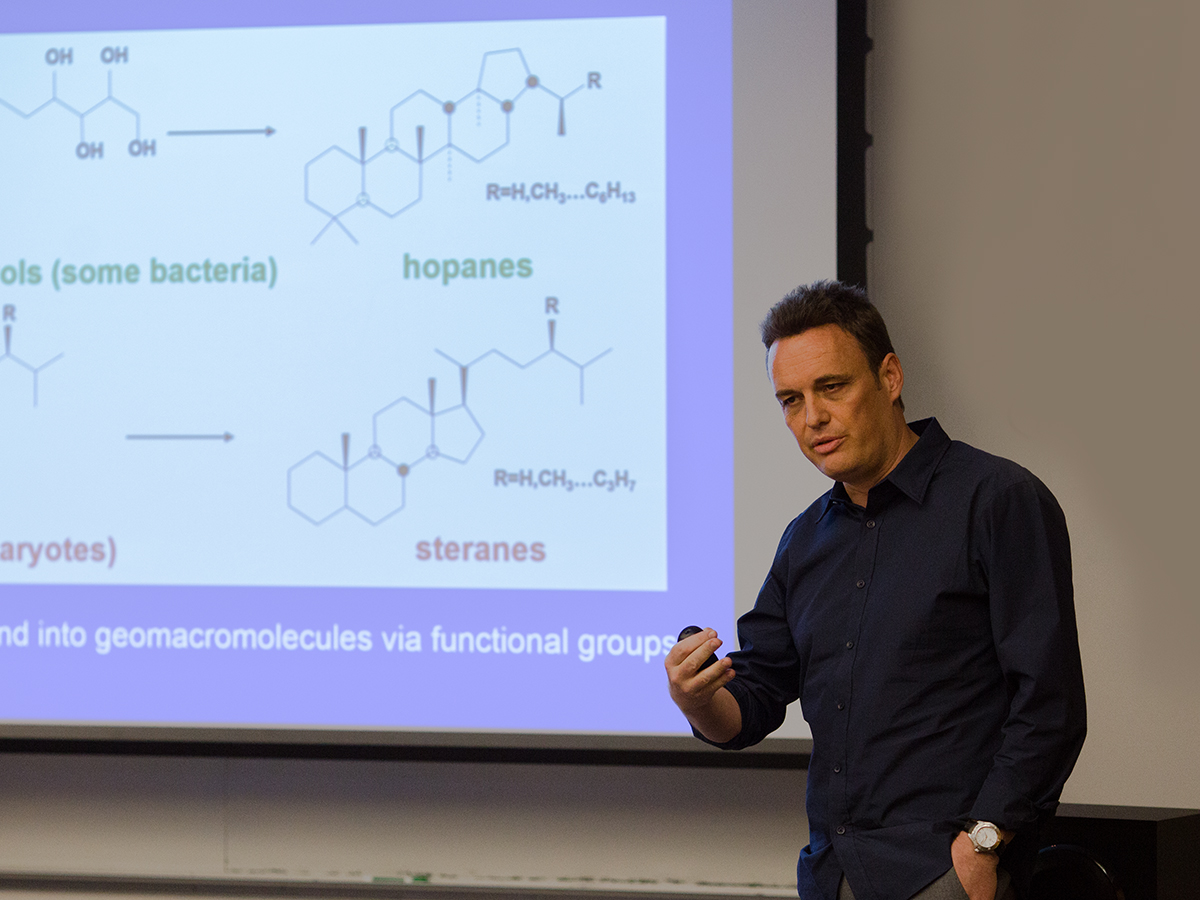
Cosmic Thursdays continued on November 12 with a lecture entitled “Evolution of Life: Tracking Using Ancient Lipid Biomarkers Preserved in Petroleum and Rocks.” The talk was given by Gordon Love, a professor in the department of earth sciences at UCR.
He opened his lecture by discussing lipid biomarkers and their importance in tracking the evolution of life. Lipid biomarkers are organic molecules that can be traced back to their natural source organism in the environment. They are detected in natural samples that, depending on what state they are in, can characterize biomass of modern and ancient organisms. Most lipid biomarkers derive from biochemicals in cell membranes. “Hopefully we get to use molecules preserved in these ancient rocks, go back in time, it will tell us about the biology that was thriving,” Love explained.
The metabolic products that biology produces change the natural environment, but at the same time, the environment selects for certain organisms to thrive. Scientists have also become more interested in looking at natural product chemistry. “We’re always trying to expand our repertoire of biomarkers to look for and also (learn more) about the current ones,” Love stated. They are also looking at the organics of meteorites for the astrobiological search for life. Lipid biomarkers are important molecular targets for astrobiology because they are more resistant than protein and DNA, among other things.
Fossil evidence proves that cellular life began about 3.5 billion years ago. The surface of the atmosphere then transformed during a process called the “great oxygenation event,” which introduced oxygen into our atmosphere. “Photosynthesis and oxygenic photosynthesis spread eukaryotic way of life … this includes plants, animals, fungi, algae,” Love explained. “It’s a more complex cell structure, generally larger in cell size than prokaryotes.” Prokaryotes, such as bacteria and archaea, were dominant organisms and biomass in oceans for about 80 percent of Earth’s history.
The origin of animals has been known for some time, but it’s much harder to find fossil evidence when dealing with smaller animals. “We believe that using lipid biomarkers will help us track the earlier periods,” Love said. Cellular life uses the same basic set of biochemicals: proteins, carbohydrates, lipids and nucleic acids. Nucleic acids like DNA would be the ideal biomarker to use in terms of preserving, however they don’t last as long as other biochemicals, like lipids, explaining why lipid biomarkers make it easier to track the evolution of life.
Love earned his PhD in chemistry from the University of Strathclyde in the United Kingdom; his primary focus of research is molecular organic geochemistry. The next lecture in the Cosmic Thursdays series will take place in December.








